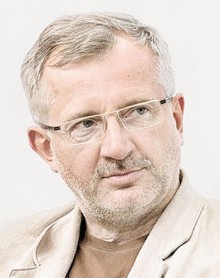The Eastern Partnership has been an element of a wider European Union’s Neighborhood Policy. Since its creation the division between East and South has been natural, although we have tried to use similar arguments and mechanisms towards all neighboring states interested in this offer.
For the EU, the Eastern Partnership has been of particular importance in terms of location of the countries involved in the project. They are par excellence part of Europe. The geographical, cultural and religious factors have proven very significant for the quality of their relations with the European Union.
The Eastern Partnership policy has been one of the few coherent and consistent EU projects. Its principles, which were defined during the two founding summits, in Prague and Warsaw, were supposed to reflect the nature of the EU’s offer. This offer could be described with the following sentence: “We want to give our partners the know-how to build better states with the rule of law, able to fight corruption, create civil society, choose better authorities through democratic elections, and as a consequence, to build economic welfare of this region.”
An important element of the Eastern Partnership policy has been the economic and trade relations with this region as well as safeguards for investors who would feel safe in these countries and therefore could contribute to their economic development. One of the principles we adopted is the famous sentence “more for more.” The countries that wanted more cooperation and were ready to actively change their law, received a concrete assistance from the EU, including financial aid. After the Vilnius Summit, which was a painful experience for the EU, we shall say the glass is in large part empty, although there is still some liquid left (the initialled association agreements with Georgia and Moldova).
The question remains about the mistake made by the EU. What happened that made Ukraine, and previously Armenia, Azerbaijan and Belarus not to take advantage of the EU offer and turn toward Russia instead? The strategy adopted by the EU, which was particularly visible at the Vilnius Summit, was to treat the Eastern Partnership members as sovereign countries that would make their own decision to accept the EU offer. The EU was not able to force them to sign the association agreements, nor to propose an economic counter-offer to Russia’s pressure. None of the EU Members States ever joined this community without a clear support of the society, usually expressed in a referendum, and of the authorities for the accession. Therefore expectations that the EU will participate in the bidding for the Eastern Partnership countries with Russia is wrong. This is not how we do politics.
Obviously, the cooperation does not end with the failed examples. We assume that the two mentioned countries will successfully complete the process of association with the EU. We hope the EU will actively support the civil societies and monitor the compliance with democratic procedures during the future elections. We also hope the perspective of visa-free regime will give a strong argument for a strategic cooperation with the EU, unless the societies will decide otherwise. We know that a significant part of Ukrainian society believes that Russia’s offer will be beneficial for them. Their choice also should be treated seriously.
In summary, the EU came with the strength of argument, but the argument of strength has prevailed. That’s how it goes sometimes. We should not turn away from this reality, but instead we should accurately describe it.







